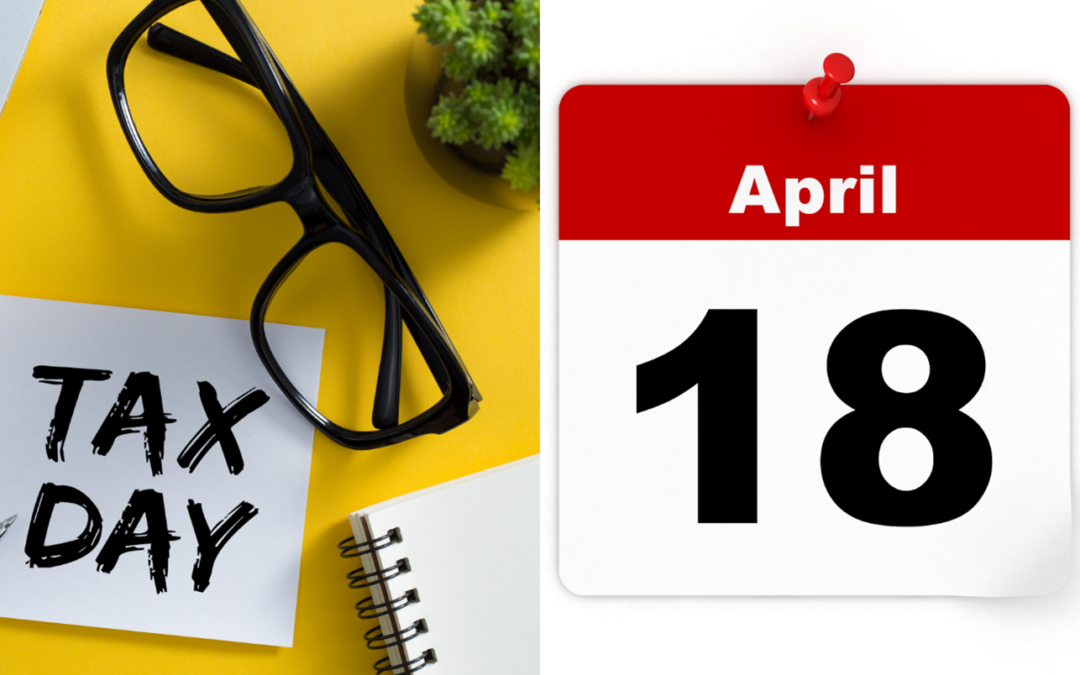Benjamin Franklin once said, “In this world nothing can be said to be certain, except death and taxes.” You can be sure that when April 18th arrives, the IRS will be looking for your tax forms.
When it comes to filing taxes, the earlier the better. In spite of your best intentions, the time between January and mid-April may have slipped away from you. Leaving you with only a few weeks or days to do your taxes.
Got a late start on completing your 2021 tax forms? We’ve got you covered. Here are five tips to help you stress less and save money on your taxes.
1. Gather and organize all your relevant financial information from 2021.
Before you begin the tax preparation process, get organized by gathering everything you’ll need in one place. Documents may include canceled checks, 1099 forms, W-2 forms and donation receipts.
Once you have gathered your documents, put them in a file folder to prevent you from misplacing them. It’s a good idea to create tabs for each folder so you’ll know exactly where to find what you need quickly.
2. Hire an accountant or a qualified tax preparer.
If doing taxes and financial accounting aren’t your best skills, why not hire a professional to help out? Qualified tax preparers and accountants can ensure the accuracy of your tax information and even notify you of any credits and deductions that can decrease your taxable income. They can also reduce common errors that often trigger IRS audits.
3. Be sure to take advantage of the charitable deduction.
If you itemize your taxes rather than taking the standard deduction, you can claim deductions for charitable contributions. Typically, you can deduct donations that you made to:
- Political Organizations
- Churches and Other Religious Organizations
- Private Foundations
- Non-Profit Organizations
- Large Food Donations (Business Tax Deduction)
- War Veteran’s Organizations
- Domestic Fraternal Societies
Contributions can be made in cash, checks or as non-cash items. For a complete list of allowable charitable deductions, contact the Internal Revenue Service.
4. File an extension.
Requesting an extension from the IRS should be a last resort. But if you know that you won’t be able to submit your taxes on time, request an automatic filing extension. Once it’s granted, the IRS will change your deadline to October 17.
An extension provides you with six more months to file your taxes. During this time, you can complete your taxes without the stress of a tight deadline looming over your head.
Here’s what you should know about filing an IRS tax extension.
- You must pay all or part of your estimated taxes by April 18th.
- The IRS extends the time for you to file your tax forms – not the time to pay your taxes.
- Be sure to e-File Form 4868 (Application for Automatic Extension to File U.S. Individual Income Tax Return) by the April 18th deadline.
5. Watch out for common audit triggers on your tax forms.
The IRS has the power to randomly audit tax forms. On average, the IRS audits 300,000 tax forms each year. The next one could be yours.
That’s why you should be as truthful and careful as possible when completing your forms. There are some things on tax forms that can raise red flags. These may include:
• Business Losses
• Mathematical Errors
• Large Deductions
• Home Tax Office Deductions
• Underreported Income
Although tax season is no surprise to anyone, it’s easy to put off doing your taxes until the last possible minute. If that’s the case for you, no worries. Implement these tips for a stress-free tax preparation experience.
Join Corporate Counsel Men of Color
Joining a professional organization such as Corporate Counsel Men of Color can help you make an impact on other people. Want to learn more about Corporate Counsel Men of Color? Enroll in our organization today.
© Copyright of Corporate Counsel Women of Color®. All Rights Reserved. To License the Use of this Article, contact [email protected]

